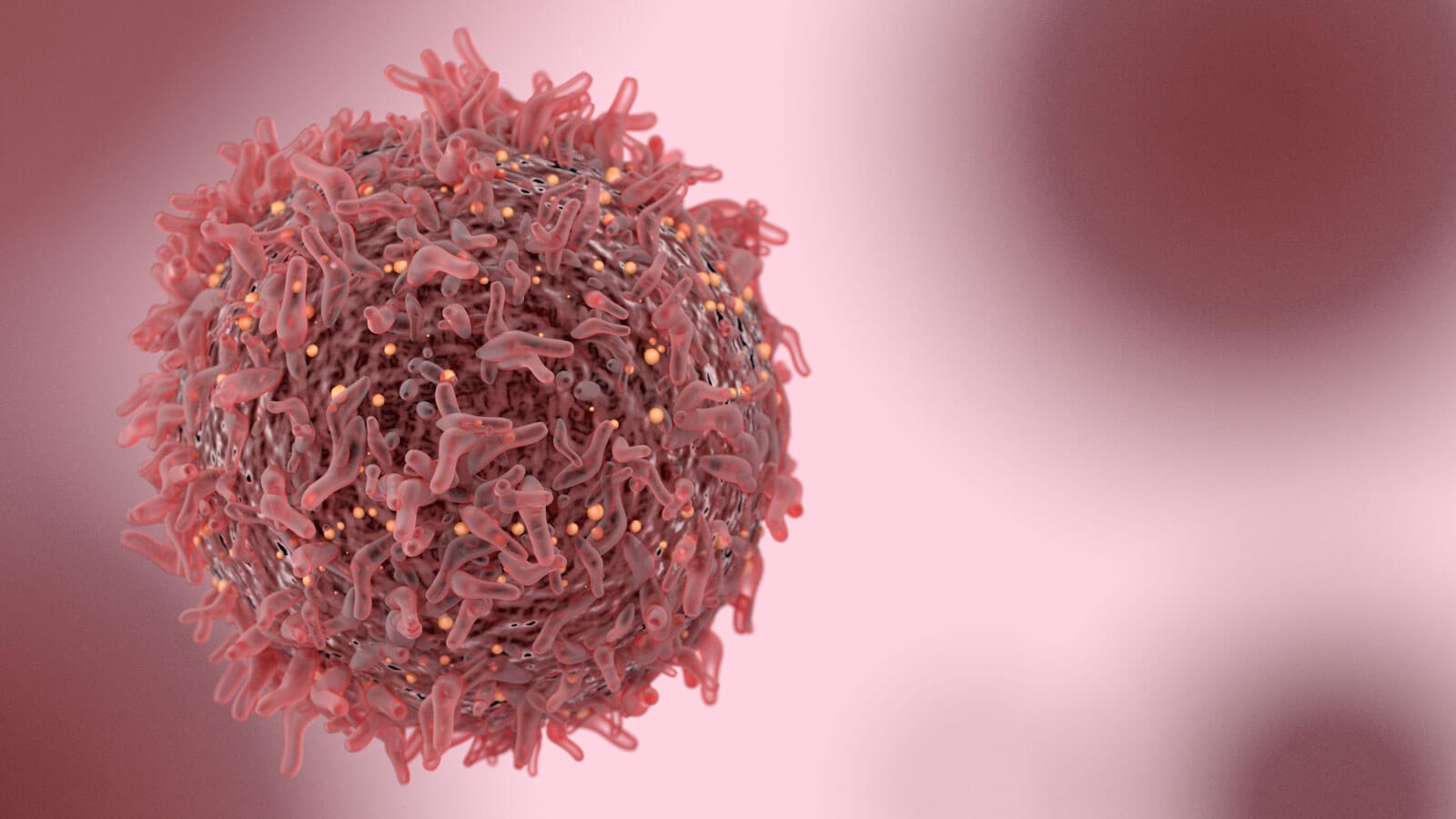Working to “Outdo” Cancer: A Multi-Modality Approach to Accelerating the Next Generation of Cancer Breakthroughs

If you caught Pfizer’s exciting commercial that ran during the NFL’s big game in February, you know that we are making a renewed commitment to outdo cancer – nothing is more urgent, or more personal, than our goal to outpace, outsmart, and outmaneuver cancer at every turn. We’re marshaling resources, making new partnerships, and investing in the fight against the many forms of the disease to help people with cancer live longer and better lives. But it won’t be easy.
Cancer cells are extremely tough to outwit, continually changing their genetic makeup in order to survive, multiply, and spread. Cancer treatment is also not “one-size-fits-all", and we have learned that we must attack tumors from multiple angles. Pfizer scientists are using their deep technical expertise to develop next-generation cancer therapies that span three core modalities: small molecules, antibody-drug conjugates (ADCs) and immuno-oncology (IO) biologics. Across these diverse mechanisms of action, we aim to develop innovative therapies and combine modalities to make the biggest impact possible for patients.
“Cancer is not a singular disease and can differ from person to person, so it requires a multi-modality approach – often combinations of modalities – to improve outcomes,” said Jeff Settleman, Chief Scientific Officer, Pfizer Oncology. “With that in mind, Pfizer is continuing to take bold approaches to translate research into new potential breakthroughs for people living with cancer.”
At the American Association for Cancer Research (AACR)'s Annual Meeting, taking place in San Diego, CA April 5-10, Pfizer will be showcasing this approach to the many scientists, clinicians, other health care professionals, survivors, patients, and advocates in attendance. We’ll be presenting 19 Pfizer-sponsored abstracts from our industry-leading portfolio and expanded pipeline, which span all our core modalities – small molecules, ADCs and IO biologics – and three key tumor areas, including breast, genitourinary and thoracic cancers.
Small Molecules: Targeting What Makes Cancer “Tick”
Small molecules include oral medicines that are small enough to enter cancer cells and target specific proteins to block cell proliferation. Additionally, by targeting vulnerabilities unique to cancer cells, small-molecule medicines aim to reduce the damage to healthy cells.
For example, in breast cancer, certain cyclin-dependent kinase (CDK) proteins become overactive, enabling cells to grow and divide uncontrollably. Small molecules called CDK inhibitors interrupt this process. Although CDK4/6 inhibitors have transformed the treatment of breast cancer, particularly for patients with a subtype of advanced breast cancer called hormone receptor-positive (HR+)/human epidermal growth factor receptor 2-negative (HER2-), it is a priority to discover and develop more effective and better-tolerated medicines.
With Pfizer’s world-class, structure-guided drug discovery and medicinal chemistry expertise, our scientists have developed a next-generation CDK inhibitor that offers a highly selective CDK4 option that could differentiate in both efficacy and safety/tolerability from first generation CDK inhibitors. Through selective CDK4 targeting it has the potential to maximize efficacy while limiting toxicity by sparing CDK6 and other kinases. Our pipeline also includes a potentially first-in-class CDK2-selective small molecule inhibitor, which we are evaluating in combination with CDK4.
Pfizer is also developing a next-generation BRAF inhibitor, which is designed to selectively inhibit mutant BRAF monomers and mutant BRAF-containing dimers and be brain penetrant. It is currently being evaluated in a Phase 1 clinical study.
Antibody-Drug Conjugates: Delivering Cancer-Killing Medicines Directly to Tumors
ADCs have become a promising class of targeted therapy designed to bind to a specific protein on the surface of cancer cells and then deliver a cytotoxic “payload” directly to tumors, reducing damage to healthy cells. In addition, these therapies can also affect the surrounding tumor area and may activate immune cells nearby to help kill cancer cells.
Pfizer has a next-generation ADC technology platform aimed at both well-established and novel targets as well as potentially improved, differentiated payloads. For example, we have several early programs that employ a novel topoisomerase 1 (TOPO1) inhibitor payload. One of those programs is our CEACAM5C ADC, which includes a TOPO1 inhibitor. This program is partnered with Sanofi and employs their CEACAM5-directed antibody tusamitamab. Phase 1 dose escalation is now underway, and clinical proof-of-concept is planned initially in colorectal cancer, with an opportunity to expand to additional solid tumor types.
In a specific type of metastatic urothelial cancer, Pfizer scientists are also exploring a novel ADC called disitamab vedotin (DV) targeting the HER2 tumor antigen. DV has a distinct mechanism of action compared to other HER2-targeted therapies and is composed of a rapidly internalized antibody that binds to HER2 and a vedotin payload. The vedotin payload kills the tumor cells directly, inducing immunogenic cell death, which alerts the immune system and facilitates the anti-tumor activity of the medicine. DV represents a promising monotherapy or combination treatment with other immune therapies. This program is currently in Phase 2 and 3 clinical trials.
IO Biologics: Unlocking the Potential of Immunotherapy
Leveraging expertise in protein engineering and antibody design, Pfizer is developing innovative IO biologics leading with bispecific antibodies, which activate the body’s immune system to destroy cancer cells.
One example is our EGFR-targeted bispecific, a bispecific gamma delta (γδ) T-cell–targeted therapy for solid tumors. EGFRd2 binds to epidermal growth factor receptor (EGFR), a well-established target of cancer therapies, on the surface of tumor cells and engages γδ T cells, eliciting an immune response. A Phase 1 dose-escalation trial is ongoing in advanced solid tumors.
New data on many of these programs, including our novel CDK4- and CDK2-selective inhibitors, next-generation BRAF inhibitor, TOPO1-ADC targeting CEACAM5, and EGFR-targeted bispecific antibody, will be presented at AACR 2024. The data demonstrates our commitment to a multi-modality approach to research and development that we believe has the potential to bring new hope to patients.
To learn more about how we’re accelerating the next generation of cancer treatments, visit www.LetsOutdoCancer.com.
02.19.2026
02.17.2026
02.05.2026
02.04.2026
02.02.2026
